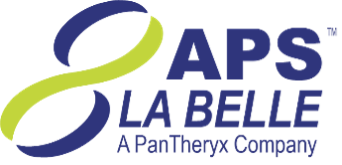Terry W. Lehenbauer Tulare, California Associate Professor and Director UC–Davis Veterinary Medicine Teaching and Research Center
Please describe your agricultural background.
My twin brother and my older sister grew up on a small dairy farm in northwestern Oklahoma and helped my mom and dad milk 25 cows on our Grade ‘A’ dairy. We grew wheat, alfalfa, other forage crops and also grazed cattle on pasture. I was on livestock and meat-judging teams in college before going to veterinary school at Oklahoma State University, and I earned the American Farmer Degree as an FFA member.
What education are you bringing with you to this position?
In addition to my veterinary degree, I completed a large animal veterinary internship program at the University of Pennsylvania and a veterinary residency program in food animal medicine at UC–Davis. Additionally, I earned from UC–Davis a master’s degree in preventive veterinary medicine and a Ph.D. in herd health (epidemiology). I am also board-certified in these two specialties.
What territory will you cover?
The VMTRC is a satellite facility of the UC Davis School of Veterinary Medicine which is located about 230 miles south of Davis near Tulare, California.We provide veterinary herd health services and conduct research projects in Tulare, Kings, and Kern counties and surrounding areas.
What are your new responsibilities?
As director of the Veterinary Medicine Teaching and Research Center (VMTRC), my responsibility is to provide leadership for continuing development of dairy production medicine and herd health educational and research programs that provide relevant solutions for enhancing cow health and for promoting productive and sustainable cattle herds.
What previous positions have you held?
I owned and operated a private dairy herd health practice in southern California for seven years, and most recently I was a faculty member at the Oklahoma State College of Veterinary Medicine for 13 years before I returned to California. Prior to my appointment as director at the VMTRC, I served as associate director for over two years.
What excites you most about working in your new role?
The two things that excite me the most about my new role are the opportunities that I have to work as a leader and a veterinarian within the dairy industry to continue a legacy of helping our dairy cattle to be healthier and more productive and to help students and young veterinarians achieve their dreams and goals as food animal veterinarians.
How will you be of most help to producers in your region or area of expertise?
At this time, my colleagues and I are conducting a variety of applied research projects that include investigation of Johne’s disease, bovine respiratory disease, mastitis control and managing heat stress of dairy cows. We are also working with the dairy industry in California through a national dairy animal care program to help provide assurance to consumers that we raise and care for our dairy cattle in ways that would meet their expectations.
Why did you choose this company?
UC–Davis is recognized consistently as one of the top veterinary schools in the U.S. Also, Tulare County is the No. 1 dairy county, and California is the No. 1 dairy state. Because of the great opportunities to work for the best veterinary school located in the top dairy state, it was an easy choice to make the decision to return to California and join the UC–Davis faculty.
What goals would you like to accomplish while in this position?
I would like to gain additional support for the VMTRC to become designated as a regional center of excellence for dairy production medicine so that we can continue to provide unique and excellent clinical training to our veterinary students, not only here in California but also across the U.S. I would also like to improve our research infrastructure so that our clinical veterinarians and faculty members can be even more productive for conducting research projects that will help to solve some of the problems and challenges facing the dairy industry. PD




